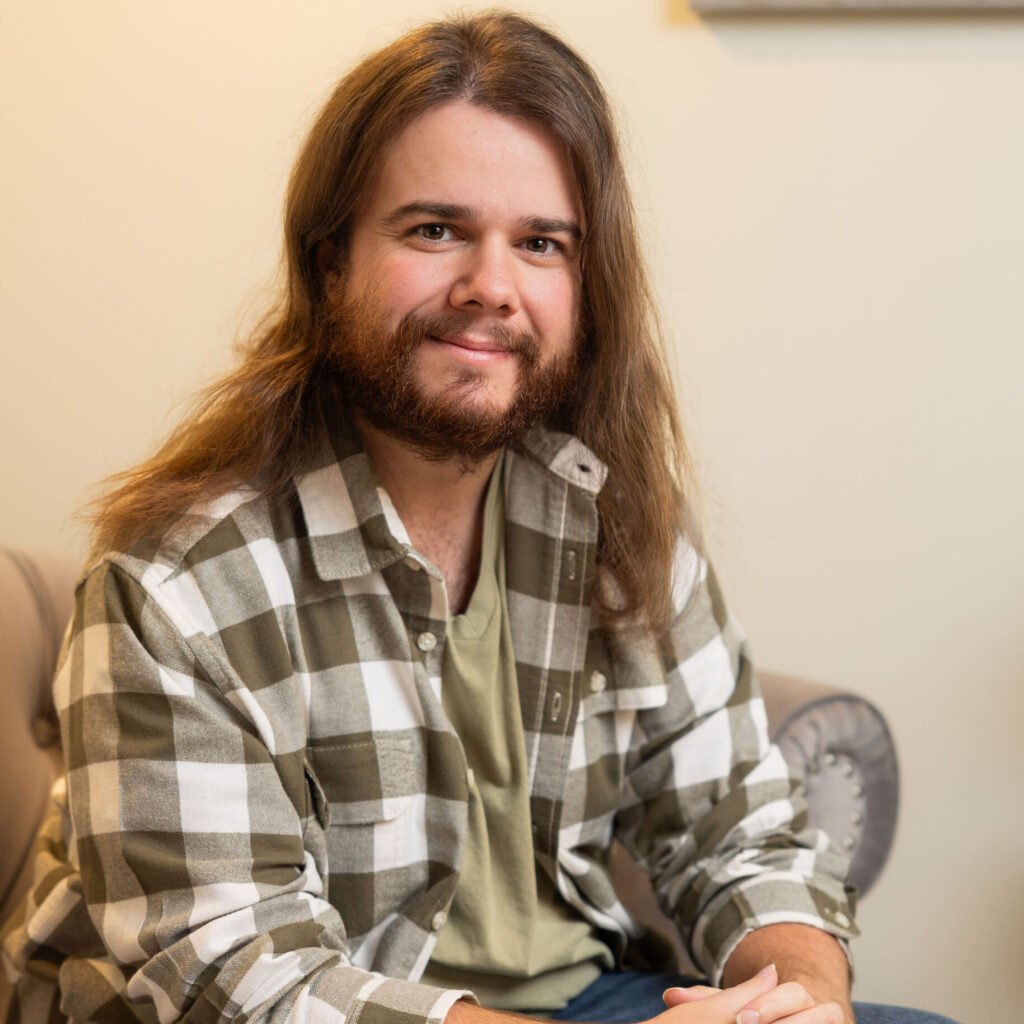About Daniel
Daniel Efird, MSW, LCSW-A

Licensed Clinical Social Worker Associate
Daniel Efird (he/him) is a Licensed Clinical Social Worker Associate (LCSW-A) with Greater Hope Counseling. He earned his Master of Social Work (MSW) degree from Appalachian State University, where he focused on clinical practice with veterans and their caregivers.
Daniel is passionate about working with individuals in the adult population experiencing Obsessive Compulsive Disorder (OCD), trauma-related challenges, grief and loss, and anxiety disorders. He draws from a variety of evidence-based approaches including Exposure and Response Prevention (ERP), Inference-Based Cognitive Behavioral Therapy (I-CBT), Cognitive Processing Therapy (CPT), Motivational Interviewing (MI), and mindfulness-based practices to support healing and resilience.
Daniel is deeply committed to creating a safe, nonjudgmental, and collaborative therapeutic space where clients feel seen, supported, and empowered. His approach honors each client’s individuality and strengths, while guiding them toward meaningful growth and lasting change. Outside of his clinical work, Daniel enjoys spending time outdoors, writing, listening to live music, and exploring fun new restaurants and coffee shops.
FAQ
Daniel’s response: I completely understand that starting therapy can feel overwhelming or intimidating, especially when it comes to discussing intrusive thoughts or painful experiences. As such I strive to make sure that my approach is warm, compassionate, and nonjudgmental. In our sessions, we’ll work together to identify your goals, talk through treatment options, and move at a pace that feels comfortable for you. I view therapy as a partnership, and I want you to feel respected, supported, and understood.
Daniel’s response: I know how scary and isolating those kinds of thoughts can feel, and you’re not alone in experiencing them. OCD often latches onto the things we care about most, which can make intrusive thoughts feel especially distressing. I will never judge you for what you share in therapy. My role is to help you face these thoughts in a safe way and reduce the power they have over your life, while offering compassion, respect, and confidentiality.
Daniel’s response: Absolutely. You’re welcome to bring a trusted support person to your initial sessions if that makes you feel more comfortable. My goal is to make therapy as accessible and supportive as possible, so you feel safe and cared for from the very beginning.
Support That Sees the Whole You.
Rooted in understanding, powered by purpose—meet Abrakay, our OCD & Autism Specialist. Whether you are seeking direct care or need a champion to offer unwavering advocacy, you’re in the right place.
